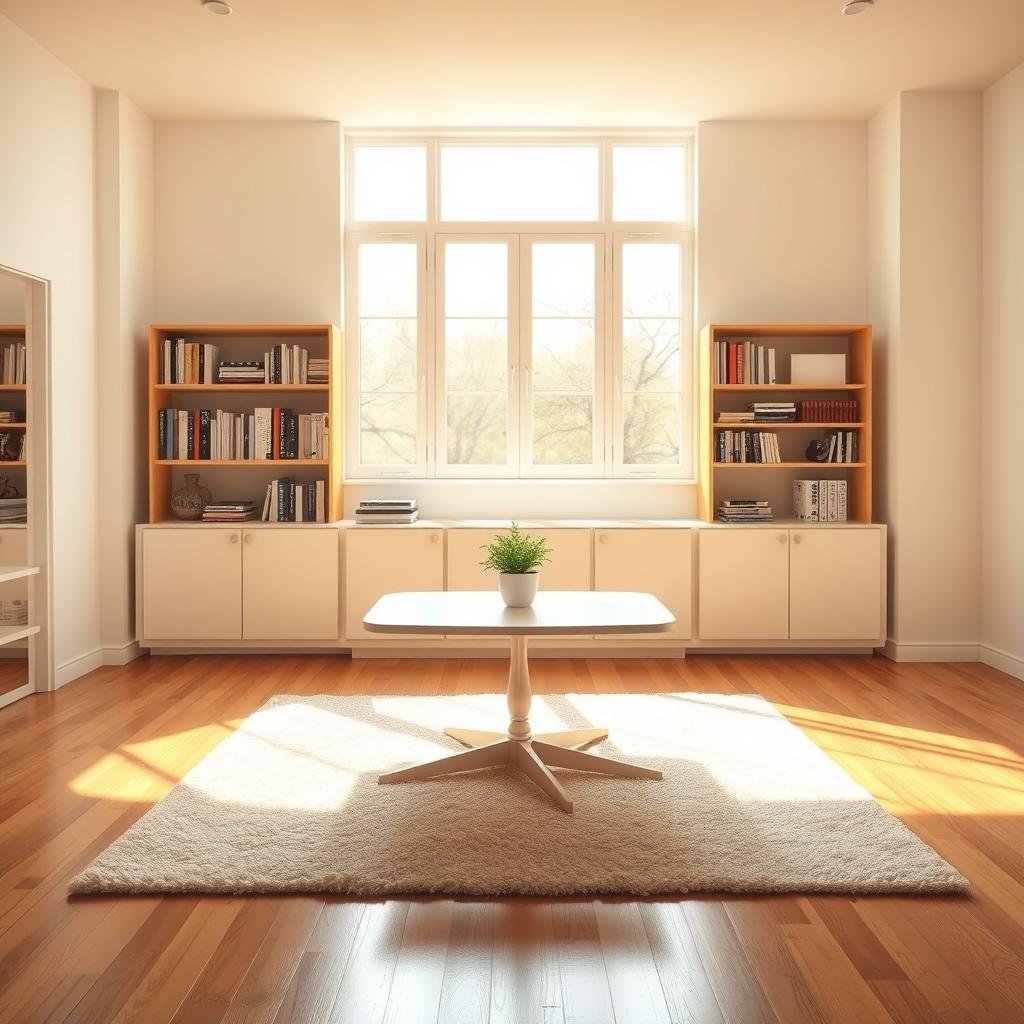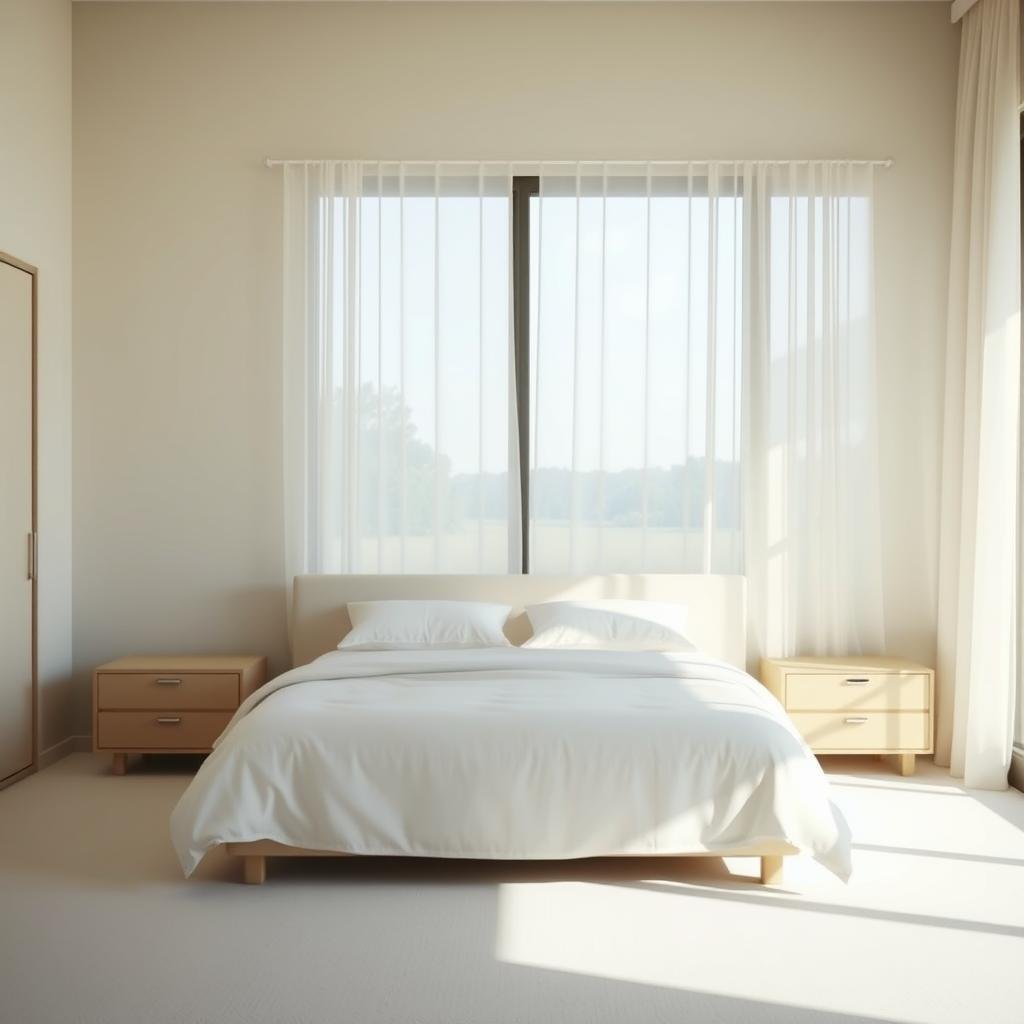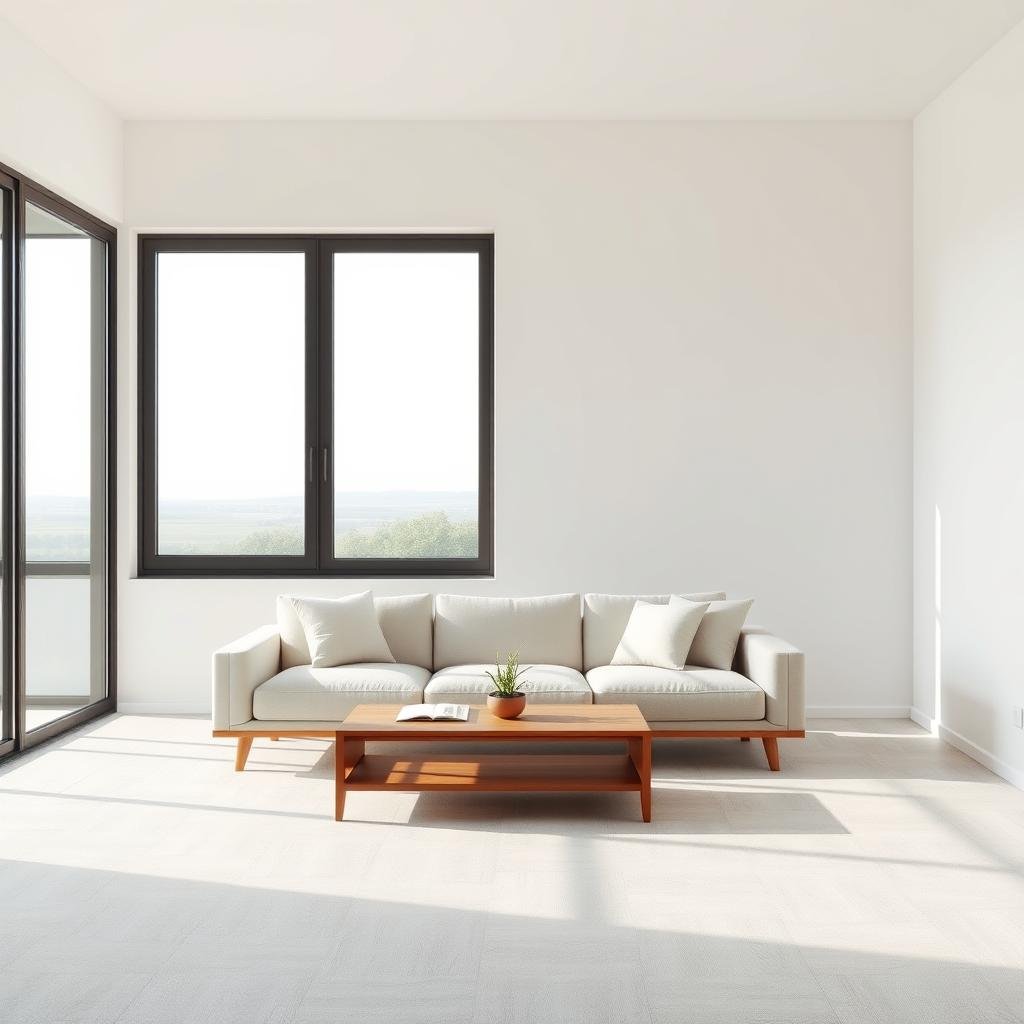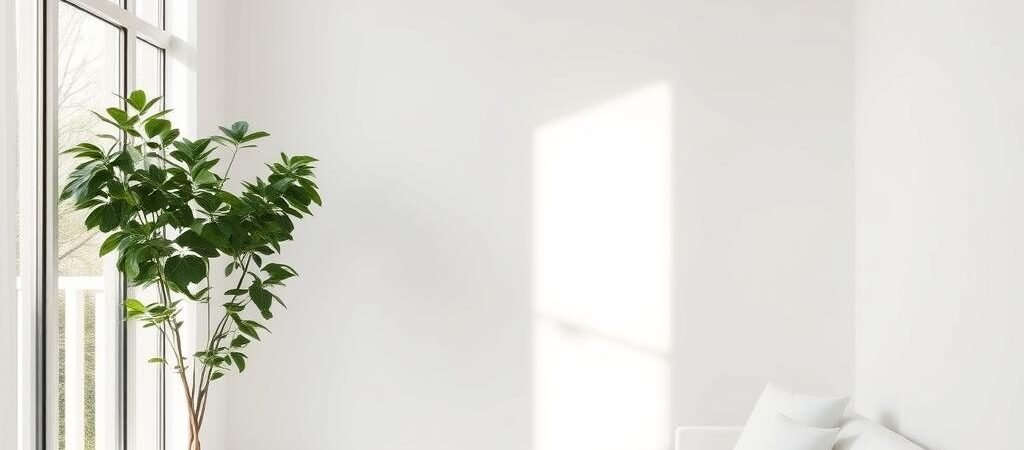Are you tired of feeling overwhelmed by the chaos surrounding you? It’s time to reclaim your space and your sanity. By embracing a minimalist lifestyle, you can create a more peaceful and focused environment that nurtures your mental health and overall health.
Imagine having the clarity to focus on what truly matters in your life, free from the distractions of clutter and unnecessary commitments. By simplifying your physical and mental space, you can unlock a sense of purpose and direction.
As you embark on this journey, you’ll discover how minimalism can be a powerful tool for transforming your lifestyle and cultivating a clearer mind. Get ready to find focus and live a more intentional life.
The Philosophy of Minimalism and Mental Well-being
The philosophy of minimalism extends far beyond the physical realm, influencing our mental health and overall quality of life. At its core, minimalism is about creating a life of purpose and clarity, where every aspect of our existence is intentionally aligned with our values.
Defining Minimalism Beyond Physical Possessions
Minimalism is often misunderstood as merely getting rid of stuff, but it’s so much more than that. It’s a mindset that prioritizes intentionality, purpose, and mental clarity. By focusing on what truly adds value to our lives, we can break free from the cycle of consumption and clutter that often accompanies modern living.
Research has shown that embracing minimalism can have profound psychological benefits. According to a study published in the Journal of Positive Psychology, individuals who adopt a minimalist lifestyle report higher levels of happiness and life satisfaction. The lead author, Joshua Hook, notes that reducing consumption and focusing less on material goods can lead to a more fulfilling life.
The Connection Between External Clutter and Internal Chaos
There’s a significant connection between our external environment and our internal mental state. Cluttered spaces can lead to cluttered minds, making it difficult to focus and process information efficiently. By creating an environment that is organized and clutter-free, we can foster a sense of calm and clarity.
- Understand how minimalism redefines success, shifting the focus from material accumulation to experiences and personal growth.
- Recognize the “mental weight” of possessions and how they demand our attention and energy.
- Learn how external order can create a foundation for internal clarity, enhancing our ability to focus on what truly matters.
By embracing the philosophy of minimalism, you’re not just decluttering your space; you’re creating a life that is more aligned with your values and aspirations. This journey towards minimalism is about creating space for abundance in the areas of life that bring genuine fulfillment and joy.
The Science Behind Minimalism and Mental Clarity
By understanding the neuroscience behind minimalism, we can unlock the secrets to a clearer mind and improved productivity. The relationship between our surroundings and our mental state is complex, and research has shown that cluttered environments can significantly impact our cognitive function and overall well-being.
Clutter and Cognitive Function
Research on Clutter and Cognitive Function
Studies have demonstrated that cluttered environments can lead to decreased cognitive function. In a study published in the Personality and Social Psychology Bulletin, it was found that women who described their homes as less cluttered and more organized experienced a decrease in depressed mood over the course of the day. This suggests that a clutter-free environment may contribute to a more positive emotional state.
Psychologist Asaf Mazar explains that a cluttered environment can create “friction,” referring to the overstimulation and distractions that hinder positive behavior. This friction can compromise our working memory, which is essential for problem-solving and creativity. By reducing clutter, we can minimize distractions and improve our ability to focus.

- The brain processes information more efficiently in uncluttered environments, leading to improved cognitive function.
- Clutter can trigger the release of stress hormones like cortisol, creating a constant low-grade fight-or-flight response.
- Organized, minimalist environments have been shown to improve focus, productivity, and decision-making abilities.
How Physical Environments Impact Stress Levels
Our physical environment directly impacts our stress levels through both conscious and unconscious pathways. Clutter can lead to increased stress hormones, affecting everything from sleep quality to immune function. The cumulative effect of environmental stress on our overall mental health and cognitive abilities over time can be significant.
By creating a more minimalist environment, we can reduce stress and improve our mental clarity. This involves not just physical decluttering but also understanding how our surroundings influence our mental state. By making conscious choices about our environment, we can support optimal brain function and improve our overall well-being.
Embracing minimalism is not just about simplifying our surroundings; it’s about creating a lifestyle that supports mental clarity, reduces stress, and improves our overall health.
5 Psychological Benefits of Embracing Minimalism
By simplifying your surroundings and streamlining your possessions, you can unlock numerous psychological benefits that enhance your overall well-being and mental health. Embracing minimalism is not just about decluttering your physical space; it’s about creating a more organized, stress-free life that allows you to focus on what truly matters.
Reduced Anxiety and Improved Mood
One of the immediate effects of minimalism is the reduction in anxiety. Cluttered environments can trigger stress responses in the brain, making it difficult to relax and feel calm. By minimizing visual and mental stimuli, you can create a sense of control and order in your daily life, leading to improved mood and emotional regulation.
Enhanced Focus and Productivity
Minimalism can significantly enhance your ability to focus on important tasks. By eliminating the distractions of a cluttered environment, you can improve your concentration and productivity. Streamlined decision-making and reduced mental fatigue are additional benefits that come from reducing physical possessions and simplifying your surroundings.

Financial Freedom and Reduced Stress
Adopting a minimalist lifestyle naturally leads to more mindful spending habits, creating financial freedom that alleviates one of life’s most common stressors. By focusing on what you truly need rather than what you want, you can reduce financial worries and improve your overall sense of well-being.
Deeper Social Connections
Minimalism shifts your focus from material acquisition to meaningful experiences, fostering deeper connections with others. By simplifying your physical space, you create room for authentic relationships to flourish without the distraction of maintaining appearances. This leads to more profound and lasting social connections.
Greater Overall Well-being and Life Satisfaction
Research has shown that minimalists report greater overall life satisfaction and well-being compared to those focused on material accumulation. The combined benefits of minimalism—reduced stress, improved focus, financial freedom, deeper connections, and value alignment—create a foundation for lasting happiness and a greater sense of fulfillment in life.
Physical Decluttering: Creating Spaces That Foster Mental Clarity
The journey to mental clarity begins with a simple yet profound step: decluttering your physical space. When you remove the physical clutter, you remove the mental clutter. With less physical things around you, you’ll have less to stress about.
Sources of Clutter
To start decluttering, you first need to identify the sources of physical clutter in your home. These typically fall into three categories: aspirational items that you’ll “someday” use, sentimental objects, and everyday accumulation.
Understanding these categories helps you tackle clutter more effectively. For instance, aspirational items might include unused gym equipment or hobby supplies that have been untouched for years.

Practical Decluttering Steps
Decluttering your home environment can be straightforward if you follow a few practical steps. Start by assessing your space objectively to recognize clutter hotspots that drain your mental energy.
Begin with high-impact areas that affect your daily routines, such as your bedroom or kitchen. Use the “one-touch rule” to handle items decisively, and create designated spaces for essential items to support your daily activities.
- Sort items into categories to make decisions easier.
- Let go of items that no longer serve a purpose or bring joy.
- Organize your remaining items in a way that makes them easy to access and maintain.
Maintaining Minimalist Spaces
Maintaining your decluttered space is crucial for lasting mental benefits. Develop sustainable decluttering habits that fit into your busy schedule, and regularly review your possessions to ensure they still add value to your life.
By creating environments that naturally encourage focus, creativity, and relaxation, you’ll experience the mental benefits of a minimalist lifestyle. Remember, the concept of “breathing room” in your physical spaces translates to mental breathing room in your daily life.
Start your decluttering journey today and experience the clarity and peace it brings.
Psychological Minimalism: Decluttering Your Inner World
The practice of psychological minimalism invites you to look beyond the physical realm and cultivate a clearer, more focused mind. While physical minimalism often calls to mind clean countertops or neatly organized closets, its mental counterpart focuses on paring down thoughts, habits, and commitments that don’t serve you. It’s about identifying what weighs you down—whether it’s a never-ending to-do list, the constant scroll of social media, or overcommitting to other people’s expectations—and learning to let it go.

Recognizing Mental Clutter and Its Impact
Mental clutter can manifest in various forms, including rumination, information overload, and emotional baggage. These subtle forms of clutter can significantly drain your cognitive resources, leading to difficulty concentrating, decision fatigue, emotional reactivity, and constant mental chatter. By understanding how mental clutter accumulates through unchecked digital consumption, unprocessed emotions, and the habit of saying “yes” to too many commitments, you can take the first steps towards a clearer mind.
- Identify the sources: Recognize the warning signs that your mind is overwhelmed.
- Understand the impact: Learn how mental clutter affects your mental health and overall well-being.
- Take action: Start by addressing the areas that contribute to your mental clutter.
Digital Minimalism: Managing Information Overload
In today’s digital age, managing information overload is crucial for maintaining mental clarity. The concept of digital minimalism offers a response to the constant barrage of notifications, emails, and information that fragments your attention. By creating healthy boundaries with technology, such as digital detoxes, notification management, and mindful consumption of online content, you can curate your digital inputs with the same intentionality you apply to physical possessions.
Practical strategies for digital minimalism include:
- Implementing digital detoxes to reduce screen time and mental fatigue.
- Managing notifications to minimize distractions.
- Practicing mindful consumption of online content to avoid information overload.
Mindfulness Practices for Mental Decluttering
Mindfulness practices are foundational to clearing mental clutter. Techniques such as focused breathing, thought observation, and present-moment awareness can help you achieve a clearer mind. Regular meditation creates the mental equivalent of a clean, organized space, allowing thoughts to arise and pass without creating lasting clutter. Additionally, journaling techniques can help externalize mental clutter, creating clarity through the process of articulating and examining your thoughts.
By incorporating mindfulness into your daily routine, you can:
- Enhance mental clarity: Regular mindfulness practice rewires your brain for greater clarity and focus.
- Improve emotional regulation: Mindfulness helps you manage emotions more effectively.
- Increase productivity: A clearer mind enables you to prioritize tasks and achieve more.
Implementing Minimalism in Daily Life
To truly benefit from minimalism, you need to weave its philosophy into the fabric of your everyday routines and decisions. This involves making intentional choices about how you spend your time, energy, and resources. By doing so, you can create a more streamlined, focused, and fulfilling existence.
One of the key aspects of implementing minimalism is setting clear boundaries around your attention and energy. This means being mindful of how you allocate these valuable resources and learning to say “no” to commitments that don’t align with your priorities.
Setting Boundaries for Your Attention and Energy
To set effective boundaries, you need to understand your personal energy patterns and design your day accordingly. This involves identifying your natural peaks and valleys of focus and creativity, and scheduling your most important tasks for when you’re most energized. By doing so, you can maximize your productivity and reduce mental fatigue.
- Identify your most critical tasks and tackle them during your peak energy hours.
- Learn to say “no” to non-essential commitments that drain your energy.
- Use tools like calendars and to-do lists to stay organized and focused.
Value-Based Decision Making for Possessions and Commitments
Making decisions based on your core values is crucial to maintaining a minimalist lifestyle. This involves evaluating new additions to your life – whether objects, relationships, or responsibilities – through the lens of long-term value. Ask yourself: “Does this align with my values and priorities?” or “Will this add significant value to my life?”
By adopting a value-based decision-making approach, you can ensure that your choices support your overall well-being and goals. This helps to eliminate unnecessary clutter, reduce decision fatigue, and create a more intentional, clutter-free life.

Creating Routines That Minimize Decision Fatigue
Developing routines that minimize decision fatigue is another essential aspect of implementing minimalism. By creating simple daily routines, you can reduce mental clutter and create a sense of structure. This can be achieved through practices like meal prepping, scheduling your day in advance, or sticking to a morning ritual.
Key strategies for minimizing decision fatigue include:
- Meal prepping to reduce daily food decisions.
- Scheduling your day in advance to minimize last-minute choices.
- Establishing a consistent morning routine to set a positive tone for the day.
By implementing these strategies, you can conserve mental energy, reduce stress, and create a foundation for calm productivity. As you continue on your minimalist journey, you’ll find that these practices become self-reinforcing, motivating you to continue simplifying and improving your daily life.
Overcoming Challenges on Your Minimalist Journey
The minimalist lifestyle is not without its challenges, requiring a nuanced approach that balances simplicity with the complexities of human emotion and social pressure. As you navigate this journey, you’ll encounter various obstacles that can test your commitment to minimalism.

Addressing Emotional Attachments
One of the most significant challenges you’ll face is dealing with emotional attachments to your possessions. It’s essential to understand that these feelings are normal and deserve compassionate acknowledgment rather than harsh judgment. You can start by honoring the memory or significance behind sentimental items while considering letting go of the physical objects themselves.
- Recognize the emotional value of your possessions and the memories they hold.
- Explore techniques for processing complex emotions that arise during decluttering.
- Create meaningful rituals around letting go that honor your connection to special items.
Dealing with External Pressures
External pressures and consumerism can also pose significant challenges to your minimalist journey. To resist these pressures, you need to be aware of the constant bombardment of advertisements and social media influences that encourage consumption. By setting boundaries with media and advertising, you can reduce unnecessary wants and comparisons.
Key strategies include:
- Recognizing and resisting consumer culture’s pressure to constantly acquire more.
- Navigating social expectations and relationships with people who may not understand your choices.
Finding Balance
Finally, finding a balance between minimalism and avoiding deprivation is crucial. This involves understanding your personal balance point where simplicity enhances your life without restricting it. By embracing minimalism as a flexible and personalized approach, you can create a lifestyle that is both simple and fulfilling.
To achieve this balance, consider exploring the concept of “enough” and recognizing when you’ve reached it in different areas of your life. This mindset allows you to practice minimalism in a way that is tailored to your needs and preferences.
Your Path to a Clearer Mind Begins Today
The path to mental clarity begins with embracing the principles of minimalism today. By focusing on what truly matters—both externally and internally—you can cut through the noise and live with intention. Minimalism is not just about decluttering your physical space; it’s about creating a lifestyle that fosters mental clarity and well-being.
Psychological minimalism encourages you to embrace stillness and downtime as integral parts of a balanced life. In a culture that often equates productivity with busyness, it can be challenging to recognize the value of rest. Yet, quiet moments of introspection and relaxation are crucial for mental health and creativity. Activities like meditation, mindful walks, or simply sitting in silence without the distractions of devices can nurture a sense of peace and clarity.
To start your journey, consider these key takeaways:
- Begin with a single intentional step towards minimalism, whether it’s decluttering a single drawer or spending five minutes in mindful silence.
- Understand that minimalism is an ongoing practice of choosing clarity over clutter and purpose over possessions.
- Create a personalized minimalist roadmap that addresses your unique challenges and goals.
- Measure your progress by the quality of focus, peace, and purpose you gain.
As you continue on your path, you’ll discover that minimalism creates a positive feedback loop. The benefits of a clearer mind will motivate you to continue simplifying. The small daily choices you make to reduce distractions and focus on what matters will compound over time into profound life changes. By integrating minimalist principles into your work, relationships, and personal growth, you’ll experience not just less stress, but more joy, creativity, and meaningful experiences.
Commit to taking that first step today. Your journey to a clearer mind through minimalism begins now, and it’s the first step towards a more intentional, purposeful life.
